Let me preface my writing today with two disclaimers. First, this subject is uncomfortable but of great importance to this community. Second, it is not my intention to create fear. My aim is to fight naivete, apathy, and fear with awareness, spiritual education, and inspiration to act in love toward our neighbors (as Christ defines our neighbors). I also want to give affected families something to share with family, friends and pastors.
For God has not given us a spirit of fear, but of power and of love and of a sound mind. 2 Timothy 1:7
Humble yourselves, then, under God’s mighty hand, so that he will lift you up in his own good time. Leave all your worries with him because he cares for you. 1 Peter 5:6-7
Friends, one thing is sure: We need not fear. Jesus has overcome the world.
The year 2022 was rough for our daughter Carly. Her anxiety and sleep problems have been severe. Although these have been life-long issues for her (and, by proxy, for us), they started dangerously impacting her weight and quality of life last year. I don’t want to be dramatic. But it is truthful to say there have been some scary times.
We are so thankful that the situation, though still very challenging, has stabilized to a degree. Also, we are very thankful her medical providers have persevered with us to find ways of helping her despite the great complexity of her condition. But we do understand what it feels like to hear from professionals who are nearing the end of their options for treatment.
Advocacy from professionals is not always assured for families facing threatening medical issues. It is not well known, but hospitals have something called Futility of Care Policies that are not always favorable to vulnerable people.
Within just the last 60 days, the Walk Right In Ministries community has been involved with three families facing decisions about lifesaving or life-sustaining medical treatment. They have experienced certain biases and sometimes pressures from medical professionals caring for their loved ones. There are no simple — and often no perfect — answers. But the aim of these families is to honor the value of all life and make decisions that align with God’s view of their circumstances.
Carly and her friends in medically or developmentally complex circumstances need reliable values along with extended families, churches and communities who will support and advocate for them in a world that is moving toward moral collapse.
RELATED: Making Decisions About Disability & Suffering from a Biblical Worldview
The following excerpt should cause us to pray passionately and ask what we, family, friends, and churches can do in the defense of life:
The term “futile care“ would seem to be synonymous with useless medical interventions — treatment and care that would provide no benefit to a patient. However, a bioethical concept called “Futile Care Theory“ is sweeping through our healthcare system. This theory proposes that physicians and hospitals should have the right to withhold or withdraw life-sustaining treatment when a patient or family wants treatment. Based on judgments about the value or quality of patients’ lives rather than on the advocacy of specific treatments or therapies, “medical futility” decisions ride roughshod over the right of patients to make their own healthcare decisions.
Source: Informed (2014), humanlife.org – Learn more here.
The essence of “Futile Care Theory” is involuntary euthanasia by omission.
Worse yet, many hospitals have adopted policies granting themselves the right to decide when it is time to stop all treatment and “allow“ a patient to die, even against the wishes of the patient or family. Some states have added “medical futility“ provisions to their Advance Directives for Health Care laws. These policies and laws have been crafted to shield physicians and hospitals from legal liability for hastening patients’ deaths. They do nothing to protect patients’ rights.
What role can family, friends and churches play alongside caregivers in the defense of life?
A family is bolstered to make healthy and godly decisions when they know they will be supported by their community — practically, emotionally, and spiritually. So, in addition to prayer, one very powerful way any of us can defend life is to come alongside caregivers.
Every time you and I help create a supportive community around a caregiver, we extend length and quality of life to both — the one providing care and the one receiving care.
Our practical helps, our emotional encouragement, our spiritual direction and resources undergird them and spur them on in what is otherwise a grueling slog through life.
There is a serious caregiver shortage in the US. This reflects what we value. Our culture is changing rapidly. The world shows partiality and our friends with disabilities are vulnerable. The world makes decisions based on values like happiness, ease, efficiency and economics. The world says God’s ways are impractical and outdated.
We feel entitled to not suffer.
Despite the world’s biased value system, God says we are incredible masterpieces of His own creative hand (Ephesians 2:10). We are made in His image, wonderfully complex. Regardless of anyone’s ability or condition, God’s sovereign mark rests on all of humanity as detailed in Psalm 139. Verses 13 and 14 celebrate:
You made all the delicate, inner parts of my body and knit me together in my mother’s womb. Thank you for making me so wonderfully complex!
Your workmanship is marvelous—how well I know it.
Caregivers carry a load of need and responsibility to educate others and solicit support. Moreso, the church has an enormous opportunity to step up.
Do not be conformed to this world, but be transformed by the renewal of your mind, that by testing you may discern what is the will of God, what is good and acceptable and perfect.
Romans 12:2
There is huge potential for a ripple-effect of life-giving love when the church engages in life with individuals and families impacted by disability!
Caregiving families have unique perspectives and have daily experiences of powerful graces from God. The church and the world benefit from engaging with these families from an understanding of their viewpoints and experiences.
There is great power in presence. Sometimes, it’s not so much about what a caring friend or pastor says as it is to simply be there. Spend time compassionately alongside someone facing difficulty. That’s what Job’s friends did, and it was good. It got a lot less good when they started trying to give advice and help. So often, the best thing we can do is pray and just be with someone.
I learned an astounding example of this power in presence from my friend Mary Kellet, founder of Prenatal Partners for Life. She explains that the presence and/or advocacy of a pastor or lay leader during a critical appointment or Care Coordination Meeting can hold powerful sway for a patient facing complex health issues communicates. Medical professionals are influenced — even held accountable — by seeing that their patient and the family are valued, supported, and protected by their community.
Walk Right In Ministries, and the families we serve, want to honor the value of all life and make decisions that align with God’s view despite difficult circumstances.
We must all be proactive about developing our relationships with God and others because it influences our growth in godly wisdom.
Having that kind of wisdom and discernment might be needed quickly and intuitively in a crisis situation. None of us knows when someone we love could be victim of an accident, need godly counsel, or need our help for accountability about the value of life. We can be ready for critical moments by keeping our hearts and minds knit closely to Christ.
Let us all spur each other on to consider God’s value of each and every person — their inherent worth, their dignity, and their purpose in His hand. Let us learn together and help each other make life-lifting decisions throughout the seasons and circumstances of life
Who will defend life when someone is vulnerable?
We all must.
Additional Resources:
Between Life & Death: A Gospel-Centered Guide to End-of-Life Medical Care by Kathryn Butler, MD
Why the Church Needs Bioethics: A Guide to Wise Engagement with Life’s Challenges John F. Kilner, Editor
RELATED: Canada euthanized 10,000 people in 2021
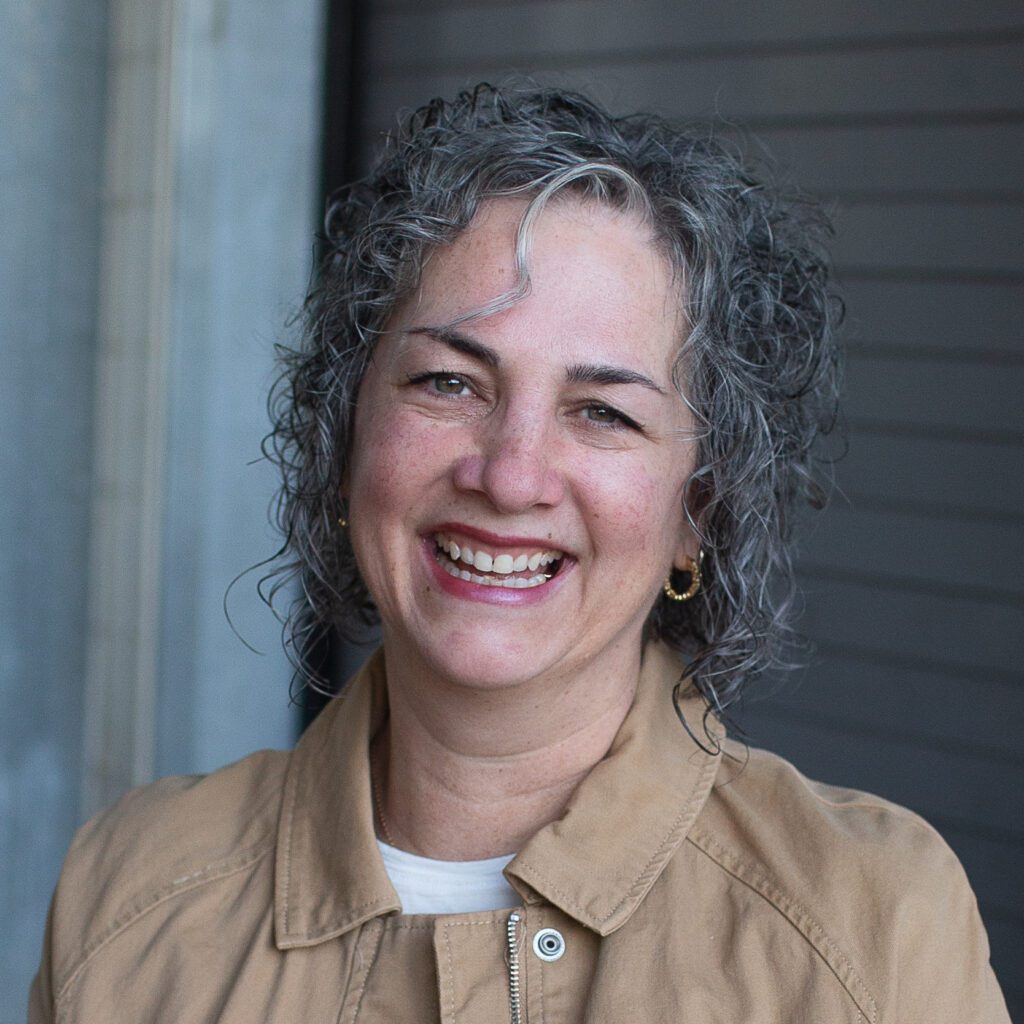
Lisa Jamieson is a caregiver advocate and author of popular books and Bible studies including Finding Glory in the Thorns and Jesus, Let’s Talk. Along with her husband Larry, Lisa co-founded Walk Right In Ministries in 2008, a non-profit interdenominational organization building faith and community with special needs families. Lisa serves caregiving families as an ordained pastoral counselor and certified Christian temperament therapist with memberships in the Sarasota Academy of Christian Counseling and International Ministerial Fellowship. Lisa and Larry have three grown daughters. Their youngest, Carly, who has Angelman Syndrome, lives at home with them in Minnesota.


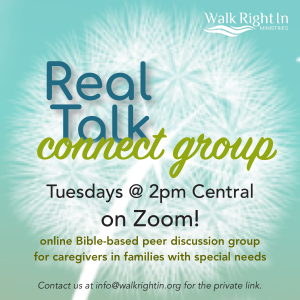
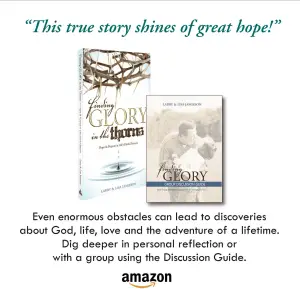
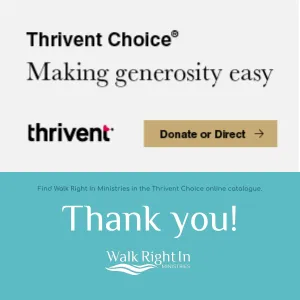
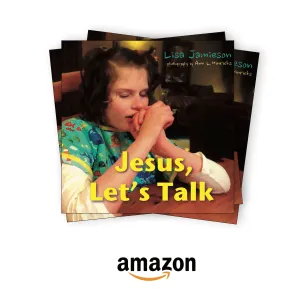

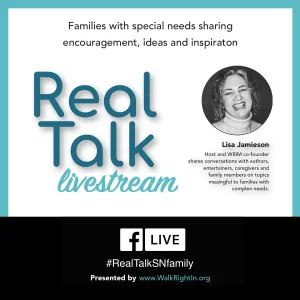
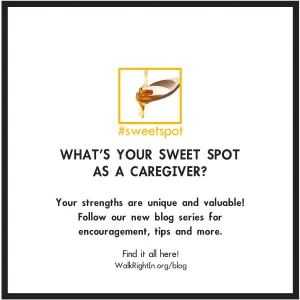

0 Comments